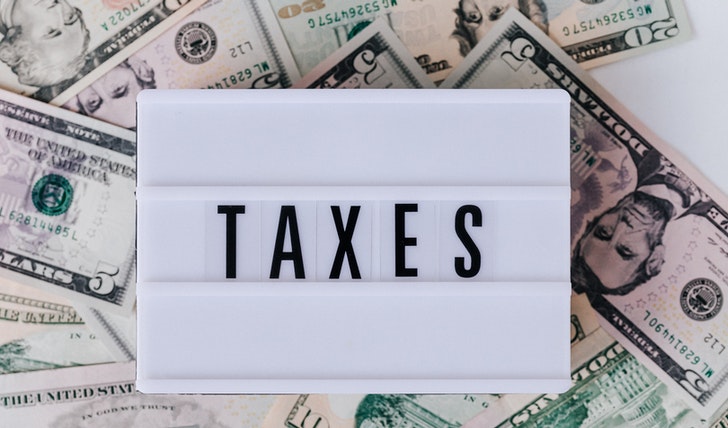
Are You Looking to Join The Great Resignation? Here is all You Need to Know About Self-Employment Taxes

As the Coronavirus broke out in 2019, employees faced tremendous difficulties. Some lost their families and loved ones. Others lost their jobs. As both of these were in an equally troublesome phase, the remaining employees were directed to work from home. In turn, this gave birth to yet another unprecedented challenge.

George / Pexels / New self-employed individuals must equip themselves with the legal procedures for self-employment.
For the first wave of COVID-19, the majority of the 9-5 workers were unable to grasp the situation. Businesses were shut. Lockdowns were frequent. Deaths were at their peak. Consequently, during the whole first wave, most of the employees did not get the time to think about their jobs and careers, as being alive remained the foremost concern.
However, with the second and third waves, they made acquaintance with the pandemic. It turned out that their careers were at stake, and their future was unforeseen. This is where The Great Resignation rolled up. A vast majority of employees quit their jobs – intentionally or unintentionally – and decided to become self-employed.
Nonetheless, self-employment seems like an easy way out, as you become “Your Own Boss.” But it comes with unforeseen challenges. Part of the problem is that these newbies are unfamiliar with self-employment procedures and protocols. Likewise, most of them do not know that they have to pay taxes on their income – no matter how small.
Tax Procedure for Self-Employment

Karolina/ Pexels / $400 is the bare minimum net income that qualifies self-employed individuals to pay taxes.
- If your earnings are $400 or more, you should pay taxes as a self-employed individual. For that, you need to file a tax return with the officials in your city.
- All of the income, earnings, expenses, and tax returns are thoroughly monitored by the tax Form 1099-NEC. This officially well-preserved form keeps an acutely monitored track of your income and becomes more active if your net earning exceeds $600.
- Similarly, Schedule C is another thoroughly maintained form that keeps up with your income and expenses.
The point is that all self-employed individuals must comply with the government’s tax policies and procedures. And there is no way out.
Tax Deductions for Self-employment

Cottonbro / Pexels / Equipping yourself with self-employment legalities is essential to lowering your taxes.
The good news is that potential self-employed individuals can lower their taxes through certain deductions. However, these deductions are determined by the nature of your self-employment. For instance, there are different deductions procedures if you are a self-employed agency. Likewise, if you are an independent and solo self-employed, you need to comply with different tax deduction terms.
-
Self-Employed Businesses Tax Deductions
You are qualified for a lot of perks and tax deductions if you run a self-employed business. You can deduct expenses for office setups, buildings, furniture, and other office equipment from your self-employment taxes.
-
Home-based Office Tax Deductions
Likewise, if you are a home-based self-employed, you can deduct the expenses of your office essentials like laptops, WiFi, and electricity bills from taxes. Similarly, you can also claim the deduction for your home-based office setup and overall expenditures.
-
Conveyance and Travel Deductions
If your business module is relevant to delivery like Uber, you can deduct the travel expense from your taxes. This may include your car’s worth, gas, and overall expenses. Similarly, if you use your own car as a conveyance to your self-employed job, you are good to deduct those expenses from your taxes as well.
More in Advisor
-
`
Brad Pitt’s ‘Semi-Retirement’ Plans
Brad Pitt, known worldwide for his Academy Award-winning acting and top-notch production skills, is not just a Hollywood sensation; he’s a...
December 9, 2023 -
`
Streaming Giant Netflix Faces Yet Another Challenge
In the ever-evolving landscape of streaming entertainment, Netflix, once the unchallenged king of digital content, now faces a complex puzzle beyond...
December 1, 2023 -
`
Signs You Should Quit Your Current Job & Move On
You Don’t Feel Comfortable at Work Imagine spending the majority of your waking hours in a place where you feel uneasy,...
November 20, 2023 -
`
How to Adjust and Renew Your Portfolio
Investing in the financial world is like navigating an ever-changing landscape—constantly evolving, always shifting. The key to staying on track? Regularly...
November 18, 2023 -
`
Dr. Dre’s Divorce With Nicole Young: A Closer Look
When the beats of old-school hip-hop start bumping, Dr. Dre’s name reverberates in fans’ minds worldwide. Born as Andre Young, this...
November 12, 2023 -
`
Why Branded Content Is the Best Way to Connect With Your Audience
Have you ever found yourself deep in a compelling article or engrossed in a video series, only to later discover that...
November 5, 2023 -
`
Why the Gender Pay Gap Could Be Getting Worse | New Research Findings
At a time when women are making significant strides in various professional arenas, a new report throws light on a trend...
October 28, 2023 -
`
What Is a Bull Market and How Can Investors Benefit From One?
In finance, the term “bull market” is frequently used to describe a period of optimism, rising asset prices, and investor confidence....
October 19, 2023 -
`
A-List Power Couples Where the Women Make More Money
In an era of shifting gender roles and evolving definitions of success, it’s increasingly common to find celebrity couples where the...
October 15, 2023















You must be logged in to post a comment Login